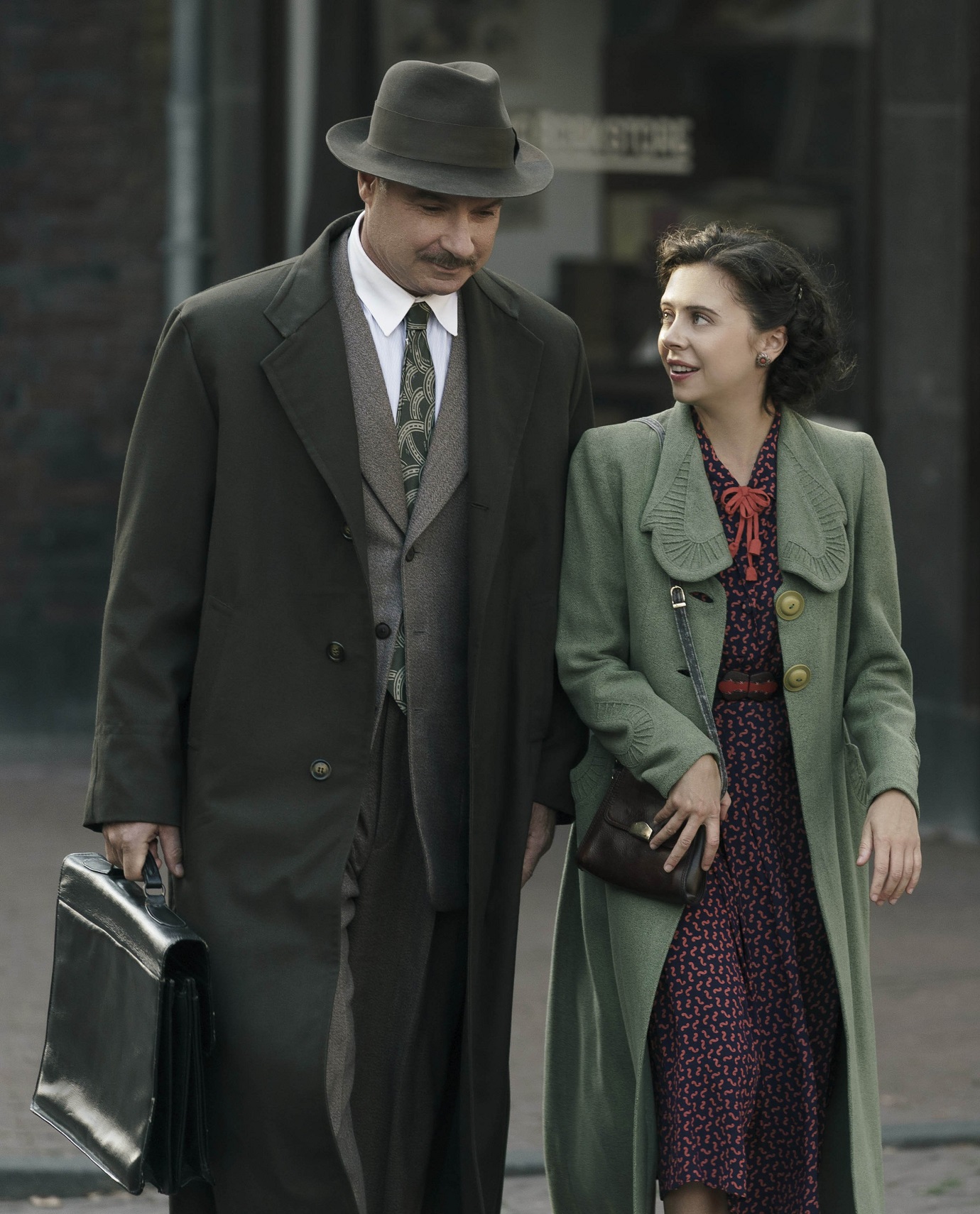
Isobel "Bel" Powley (31) was Bafta-nominated for The Diary of a Teenage Girl and shortlisted for a British independent film award for playing Princess Margaret in A Royal Night Out. Subsequent film roles include The King of Staten Island and Mary Shelley. She now plays Hermine "Miep" Gies in miniseries A Small Light, based on the true story of the young woman who hid the Frank family during World War 2 and preserved Anne’s diary.
Q Were you familiar with Miep Gies’s story?
A I’d read Anne Frank’s diary as a kid, and I’m Jewish myself, so you grow up with this weight of history running through your family, but I knew nothing about Miep Gies. I was offered the role on Holocaust Memorial Day, which felt kind of special, but was genuinely like: Who is that? Nor did I know about the occupation of the Netherlands and the Dutch resistance. The first thing I did was get my butt over to Amsterdam. It’s a city that operates in a very specific way — everyone cycles everywhere, it’s built on waterways — so I immersed myself in how it feels to live there. I visited the Anne Frank museum, obviously, but also went to Miep’s old apartment and cycled the same routes as her. That was my springboard for working on this.
Q Are there Jewish refugees in your family tree?
A No, but my great-grandparents left the border of Lithuania during the pogroms of the early 20th century. They boarded a boat to America but got off at the fuelling stop in Dublin, thinking they were in New York. I’m not joking! My grandmother was born in Dublin and spoke Yiddish with a thick Irish accent. She had friends and cousins in Auschwitz but she was safe in Dublin during the Holocaust. I’m getting my Irish passport now, thanks to her.
Q Was Miep Gies a reluctant heroine?
A She was an ordinary young woman in an extraordinary circumstance. She had this unwavering sense of justice and did the right thing without hesitation. Miep’s mantra for the rest of her life was: "Please don’t call me a hero. I did my duty as a human being and was just helping friends in need."
Q The series feels fairly contemporary for a period drama. Was that a draw for you?
A It was one of my main reasons for taking the job. Previously I’d shied away from period drama. I often find myself feeling quite distanced from them. Language is a barrier, the costumes feel very rigid and I found it hard to access characters. But A Small Light’s scripts removed those hurdles. We were allowed freedom with the way we spoke. It wasn’t that classic dusty period drama-type speech. We could also improvise, which added to the naturalism.
Miep feels like a modern woman ... She was, for her time. When she fell in love with her husband, Jan [played by Joe Cole], he was still married, but separated. She didn’t want kids and didn’t have them until much later in life. And Otto Frank [Liev Schreiber] was a man 20 years her senior but they were best friends. There’s something very ahead of its time about that.
Q Was it refreshing to tell a war story from a female viewpoint?
A That’s another reason why I’d shied away from second world war stories — because it’s always all about men. I have a small part in Masters of the Air, Steven Spielberg and Tom Hanks’s Band of Brothers sequel. The show is fantastic but it’s still about men at war. I have one of two leading female roles in an ensemble cast. So another thing that excited me about A Small Light was it’s completely told from a woman’s perspective. I’ve been working for 15 years now and I’m always searching for roles like this.
Q Are the themes in A Small Light relevant today?
A There are so many parallels with what’s happening today. Authoritarian regimes are popping up all over the world. Antisemitism is massively on the rise. There are more displaced people now than ever. In some ways, this could be seen as a cautionary tale, about the dangers of dictatorships scapegoating groups of people. In the opening episode, Miep’s like: "Of course Hitler’s not going to come here. We’re a liberal country. The Queen says we’re going to be neutral." By the next scene, there’s Nazi occupation. It’s reminiscent of what happened in Ukraine last year. Historical drama has to be relatable. Audiences need to connect it to now, otherwise what’s the point?
— Guardian News and Media












